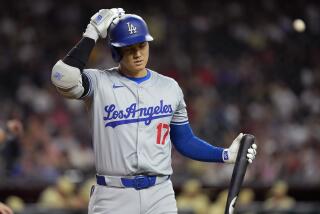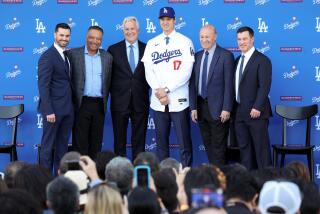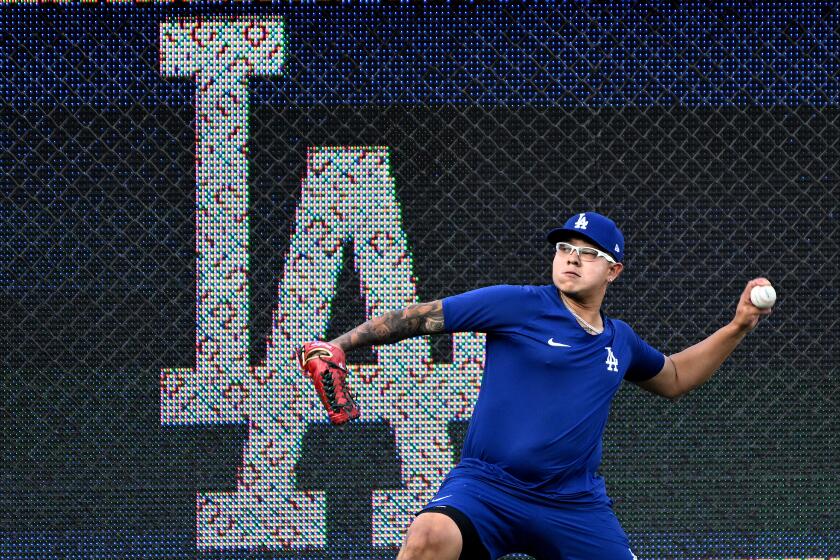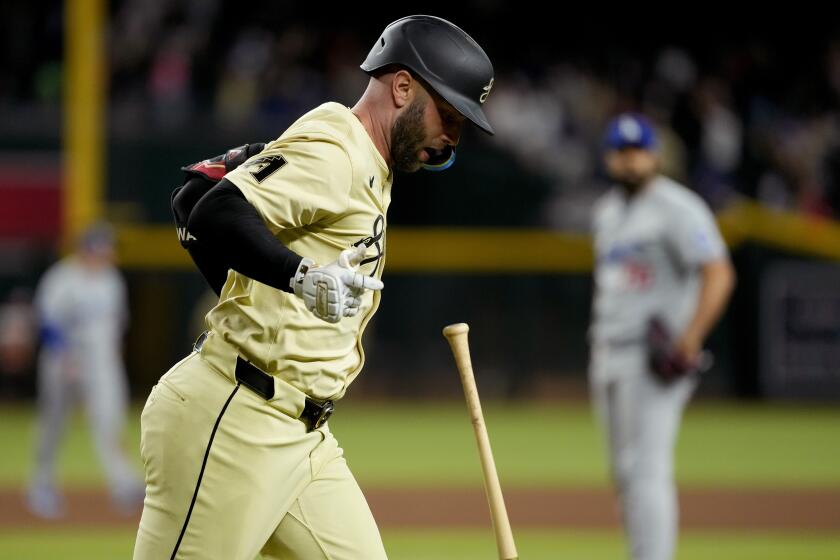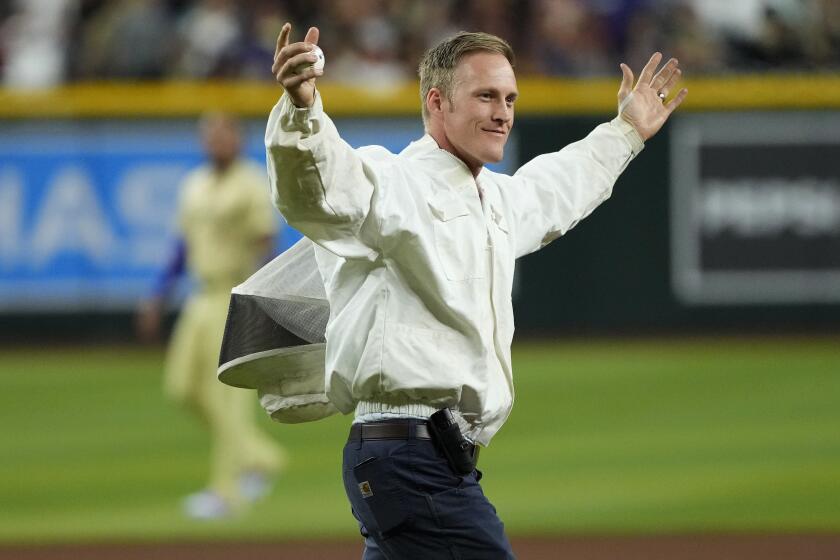Dodgers’ future is at stake in Los Angeles Superior Court
Frank and Jamie McCourt were married in 1979. The McCourts took over the Dodgers in 2004 and separated last year, four months shy of their 30th anniversary. Their divorce trial begins Monday in Los Angeles Superior Court.
What’s at stake?
The future of the Dodgers. Frank wants the court to enforce a postmarital agreement — signed in 2004 by both spouses — that says he is the sole owner of the team and she is the sole owner of the couple’s homes. Jamie wants the agreement thrown out.
On what grounds?
Jamie says she never would have knowingly signed away her right to the Dodgers. She says the agreement would be inherently unfair if upheld, since by her figures Frank would walk away from the marriage with $1 billion in assets and she would walk away with $70 million. She says she signed the agreement without reading it, trusting her husband when he said the document was designed to protect the couple’s homes from creditors.
What does Frank say?
He says the document did exactly what he said it did and that Jamie wanted it that way, that she insisted upon such an agreement so as not to risk losing the homes if the McCourts failed to reverse the Dodgers’ financial losses. He says he would have been “wiped out” in two years had those losses not been reversed, without liability to Jamie or loss of the homes, and that she cannot change the agreement now simply because the value of the Dodgers has gone up and the value of the homes has gone down.
Is there any disagreement over what the agreement says?
Yes. There are six copies of the agreement, three that specify Frank is the sole owner of the Dodgers and three that do not. Jamie says this is proof enough to throw out the agreement. She also says Frank “fraudulently altered” the agreement after she signed it.
Frank concedes that three copies do not provide him with sole ownership of the team — and virtually all other McCourt business assets. He cites a drafting error by the lawyer who wrote the agreement and says the lawyer did nothing more than fix the error after Jamie signed. He also says those versions would be nonsense, since they would have left Jamie with sole ownership of the homes and Frank with sole ownership of $119 million in personal liabilities.
Who testifies first?
Leah Bishop, a Los Angeles estate planning attorney, is scheduled to be the first witness, on Jamie’s behalf. In a 2008 meeting, Bishop explained to the McCourts that the agreement specified that Frank was the sole owner of the Dodgers. “That’s not what it was supposed to be,” Frank allegedly told Bishop.
Jamie says this is evidence that she and Frank intended to share ownership of the team. Frank says the context of his comment referred to what would happen to the Dodgers if he died, not if the couple divorced. In any case, Frank says, he did not sign the documents subsequently prepared by Bishop that would have made the Dodgers community property. The marriage unraveled shortly thereafter.
Why haven’t the McCourts settled?
Each side has plenty to lose. If Frank loses, he could lose control of the Dodgers. If Jamie loses, she might not get another penny from a team that generates hundreds of millions of dollars every year.
Jamie is willing to yield control of the Dodgers in a settlement, but the sides are hundreds of millions apart on a deal. Frank is willing to pay her a share of the Dodgers’ current value; Jamie also wants a share of future revenue from broadcast rights and land development.
The sides can settle at any time during the trial. The trial starts with four days this week, then takes a two-week recess, offering both sides the option to reconsider a settlement then.
If Jamie wins, who owns the Dodgers?
The team presumably would be considered community property, with ownership split evenly. Frank’s lawyers say the Dodgers would have to be sold at that point. Jamie’s lawyers say she could put together an ownership group to buy out Frank.
Is the trial attracting attention beyond Los Angeles?
Yes. The court has reserved seats for about three dozen news outlets, including CNN, ESPN, NPR, the New York Post, TMZ and “Inside Edition.”
When do we find out who wins?
Judge Scott Gordon has 90 days to issue his ruling. If the trial extends to the last scheduled day — Sept. 30 — and Gordon takes the full amount of time to rule, the Dodgers’ ownership situation would remain unsettled through Major League Baseball’s winter meetings.
Either side could then appeal Gordon’s decision, a process that could take years to conclude.
bill.shaikin@latimes.com
More to Read
Are you a true-blue fan?
Get our Dodgers Dugout newsletter for insights, news and much more.
You may occasionally receive promotional content from the Los Angeles Times.
